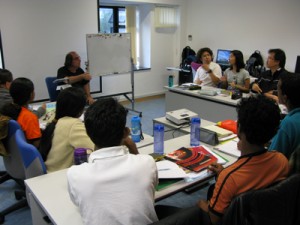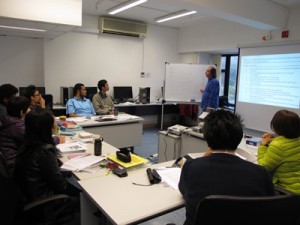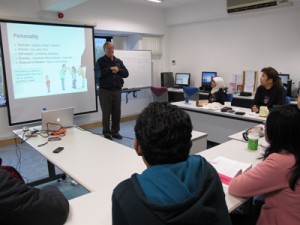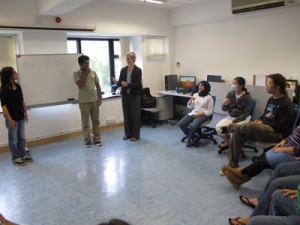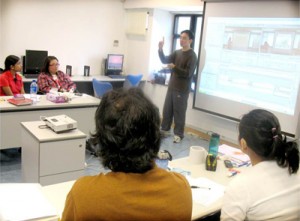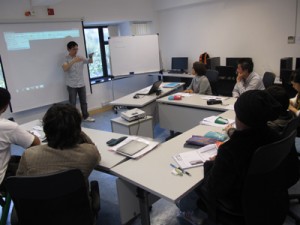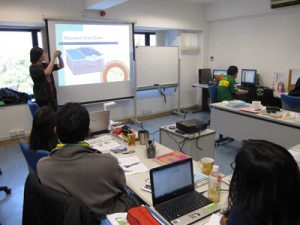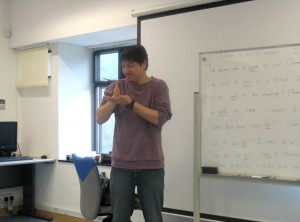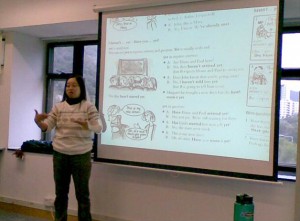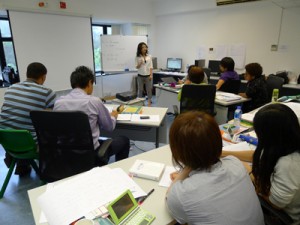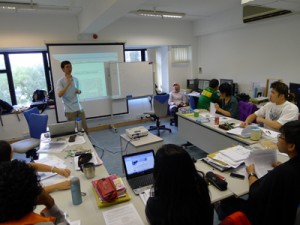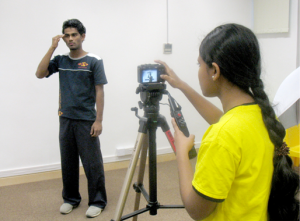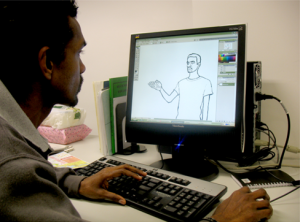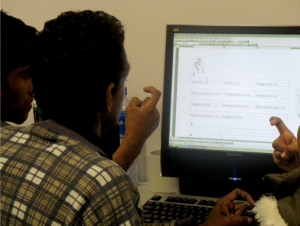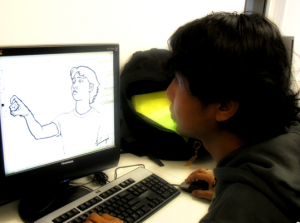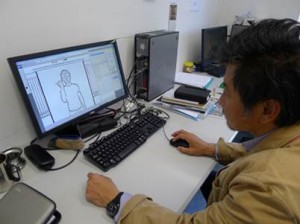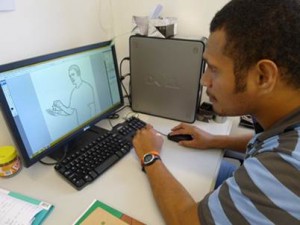Phase II: Asia Pacific Sign Linguistics Research and Training Program: A Project for Deaf Empowerment (2006-2012)
Background
As the second phase of the Nippon Foundation-founded research project, this program is intended to last for 6 years during which a series of sub-degree programs will be launched, aiming to provide centralized training in sign linguistics and sign language teaching to deaf and hard of hearing students in the Asia Pacific region.
The program will benefit up to 4 Asian countries at the Certificate/Diploma level, among which 2 Asian countries will proceed to the Higher Diploma level, leading to the possibility of tertiary education.
In addition to the establishment of sign language research and training in the Asia Pacific region, this program will maintain the spirit of Phase I – the training has the goal of publishing dictionaries and teaching/learning materials based on specific sign languages in the Asia Pacific region.
The second phase of the program has the following goals:
- To create a new generation of educated deaf adults who know and appreciate the nature of sign language so that they can justify for themselves how it benefits deaf people in their quest for new knowledge
- To promote educational opportunities for Asian deaf individuals through providing training in academic content leading to the possibility of high education: a concept of ‘deaf empowerment’
- To train deaf sign linguists/academics who can eventually team up with hearing linguists in sign language research and training in the home country
- To establish sign linguistics as a training and research discipline in Asian universities for the hope of setting up a consortium of Asian sign linguists for future collaboration
- To continue developing “The Asian SignBank”, an important research archive for documenting Asian Sign languages with linguistics descriptions
Training
While in keeping with the original spirit of the Practical Dictionaries project in Phase I, the program in Phase II also attempts to couch the research and training of sign linguistics within the context of high school education for the deaf researchers and postgraduate education for Asian students of linguistics. Through partnering with Asian tertiary institutions, government bodies and deaf associations, the program in this phase has the goal of generating teams of professionally trained sign language researchers, deaf or hearing, to support the establishment of sign linguistics research and training in different tertiary institutions in the Asia Pacific region.
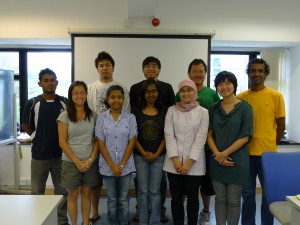 |
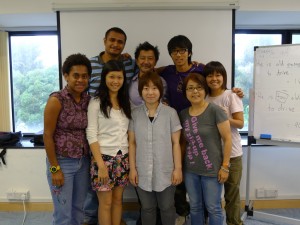 |
|
1st Cohort (2007-2012) Deaf and hearing trainees from Sri Lanka, Indonesia and Hong Kong |
2nd Cohort (2010-2015) Deaf trainees from Fiji, Japan and Hong Kong |
In this second phase, a series of sub-degree programmes jointly offered by CSLDS and the School of Continuing and Professional Studies of CUHK are launched to provide centralized formal training in sign language research and sign language teaching to Deaf students at CSLDS. These programmes cover topics including sign linguistics, applied sign linguistics, deaf studies, English literacy skills and IT applications. For details of the programmes, see here.
During this phase, Fiji and Japan are benefiting from the Programme at the Diploma level, while Sri Lanka and Indonesia have already proceeded to the Higher Diploma level.
Research
The deaf and hearing junior researchers collaborate closely with the instructors at CSLDS in conducting cross-linguistic research on Asia-Pacific sign languages. The findings of which will be documented in a database called ‘Asian SignBank’. At the university level, the sign linguists of CSLDS will be collaborating closely with the linguists of the Asian universities and the deaf associations in conducting researchers on Asia-Pacific Sign Languages.




